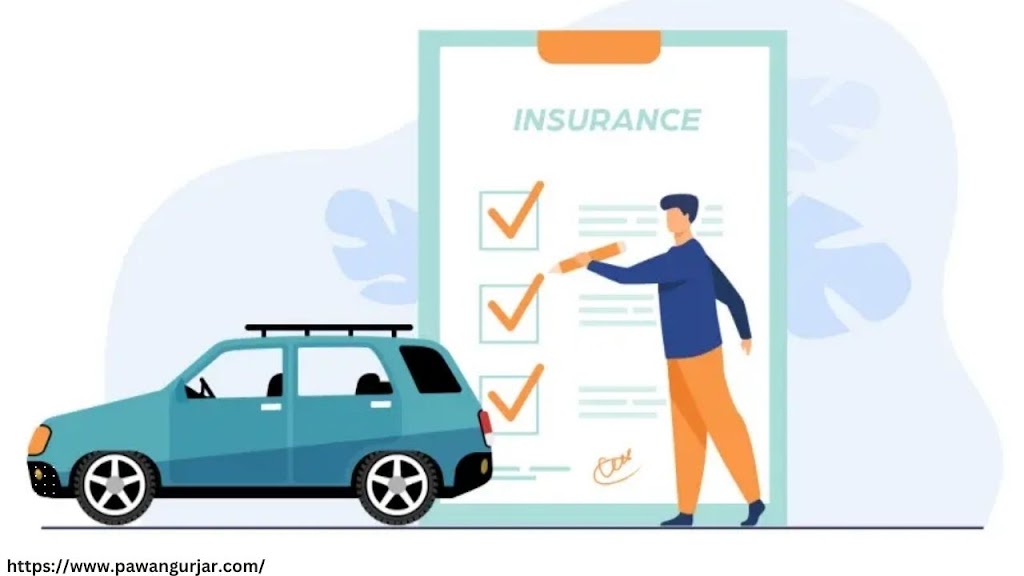Accidents happen unexpectedly, and dealing with the aftermath can be stressful, especially when it comes to insurance premiums. Whether it’s a minor fender-bender or a more serious collision, an accident on your driving record can lead to increased insurance rates. However, there are proactive steps you can take to lower your insurance costs even after an accident.
Understanding the Impact of Accidents on Insurance Rates
When you’re involved in an accident, insurance companies typically view you as a higher risk driver, which can result in higher premiums. The severity of the accident and the extent of the damages can influence the magnitude of the rate increase. However, there are strategies you can implement to mitigate the financial impact and potentially lower your insurance rates.
Assess the Damage
After an accident, it’s crucial to assess the damage to both your vehicle and your insurance rates. Begin by documenting the details of the accident, including photographs of the scene and any relevant documentation such as police reports or witness statements. Understanding the specifics of the accident can help you navigate the insurance claims process more effectively.
Additionally, review your insurance coverage to determine the extent of your policy’s benefits. Familiarize yourself with the deductibles, coverage limits, and any exclusions that may apply to your situation. Being well-informed about your insurance policy will empower you to make informed decisions moving forward.
Shop Around for Quotes
One of the most effective ways to lower your insurance rates after an accident is to shop around for quotes from different insurance providers. Each insurance company evaluates risk factors differently, so you may find significant variations in the rates offered. Take the time to compare quotes from multiple insurers to ensure you’re getting the best possible deal.
While price is important, it’s also essential to consider the coverage options included in each quote. Evaluate the deductibles, coverage limits, and additional benefits offered by each insurer to determine the overall value of the policy.
Consider Accident Forgiveness Programs
Some insurance companies offer accident forgiveness programs, which can help mitigate the impact of an accident on your insurance rates. These programs typically forgive your first at-fault accident, preventing your rates from increasing as a result. However, eligibility criteria and program benefits vary depending on the insurer, so be sure to inquire about the specifics of each program.
Accident forgiveness programs can provide peace of mind knowing that your rates won’t skyrocket after a single mistake on the road. However, it’s essential to understand the terms and conditions of the program to ensure it aligns with your needs.
Take Defensive Driving Courses
Another effective strategy for lowering insurance premiums after an accident is to enroll in defensive driving courses. These courses are designed to educate drivers on safe driving practices and defensive maneuvers to avoid accidents. Many insurance companies offer discounts to drivers who successfully complete approved defensive driving courses, as they are seen as lower-risk drivers.
By investing in your driving skills and knowledge, you not only reduce the likelihood of future accidents but also demonstrate to insurers that you’re committed to safe driving practices. Be sure to enroll in recognized defensive driving programs approved by your insurance company to maximize potential discounts.
Increase Deductibles
Consider adjusting your insurance deductibles to lower your premiums after an accident. Deductibles represent the amount you must pay out of pocket before your insurance coverage kicks in. By opting for higher deductibles, you can lower your monthly premiums, potentially offsetting the increased costs resulting from the accident.
However, it’s important to strike a balance between deductibles and premiums that aligns with your financial situation. While increasing deductibles can lead to immediate savings on premiums, be prepared to cover higher out-of-pocket costs in the event of future accidents.
Maintain a Clean Driving Record
Maintaining a clean driving record is essential for keeping insurance rates low, especially after an accident. Avoiding traffic violations and accidents demonstrates to insurers that you’re a responsible driver, reducing the likelihood of rate increases.
Practice safe driving habits such as obeying speed limits, using turn signals, and avoiding distractions while driving. By prioritizing safety on the road, you not only protect yourself and others but also maintain your eligibility for lower insurance premiums.
Utilize Telematics Devices
Many insurance companies offer telematics programs that monitor your driving behavior using GPS technology. These devices track factors such as speed, acceleration, braking, and mileage to assess your risk level as a driver. Depending on your driving habits, you may be eligible for discounts on your insurance premiums.
By participating in telematics programs and demonstrating safe driving habits, you can potentially lower your insurance rates over time. Some insurers even offer personalized feedback and tips for improving your driving based on telematics data.
Review and Adjust Coverage
Regularly reviewing and adjusting your insurance coverage can help ensure you’re getting the best value for your money. As your circumstances change, such as buying a new car or moving to a different location, your insurance needs may evolve. Periodically reassess your coverage to determine if any adjustments are necessary to optimize your protection and minimize costs.
Consider factors such as changes in your driving habits, financial situation, and life events when reviewing your insurance coverage. By staying proactive and informed, you can make informed decisions that align with your evolving needs and priorities.
Seek Professional Advice
If you’re unsure about how to lower your insurance rates after an accident, don’t hesitate to seek professional advice from insurance agents or financial advisors. These experts can provide personalized guidance tailored to your specific situation and help you explore available options for reducing your insurance costs.
Schedule a consultation with an insurance agent to discuss your concerns and explore potential strategies for lowering your premiums. They can provide insights into discounts, coverage options, and other factors that may impact your insurance rates.
Consider Bundling Policies
Bundling your insurance policies, such as home and auto insurance, with the same provider can often result in significant savings. Insurance companies typically offer discounts to customers who purchase multiple policies, known as bundling discounts. By consolidating your insurance coverage with one provider, you can streamline your payments and enjoy lower overall premiums.
Evaluate your insurance needs and consider bundling your policies with a single provider to take advantage of potential savings. Be sure to compare quotes from different insurers to ensure you’re getting the best deal on bundled policies.
Opt for Pay-Per-Mile Insurance
If you’re a low-mileage driver, consider opting for pay-per-mile insurance, also known as usage-based insurance. This type of coverage charges you based on the number of miles you drive, rather than a fixed premium. If you drive infrequently or have a short commute, pay-per-mile insurance can result in significant savings compared to traditional insurance policies.
Pay-per-mile insurance policies typically involve installing a telematics device in your vehicle to track your mileage. The less you drive, the lower your insurance costs, making it an attractive option for drivers who prioritize affordability and flexibility.
Improve Credit Score
Your credit score can also impact your insurance rates, as insurers often use credit-based insurance scores to assess risk. By improving your credit score, you may qualify for lower insurance premiums, even after an accident. Take steps to build your credit by paying bills on time, reducing debt, and monitoring your credit report for errors.
Check with your insurance company to see how your credit score affects your rates and explore strategies for improving your credit over time. While it may take time to see significant improvements, even small changes can make a difference in your insurance premiums.
Explore Group Discounts
Many insurance companies offer group discounts to members of certain organizations or affiliations. These discounts can vary widely depending on the group, but common affiliations include employer groups, alumni associations, and professional organizations. If you belong to any eligible groups, inquire about potential discounts available through your insurance company.
Group discounts can provide substantial savings on your insurance premiums, so it’s worth exploring any affiliations that may qualify you for discounted rates. Contact your insurance provider or check their website for information on available group discounts and eligibility requirements.
Conclusion
Lowering insurance rates after an accident may seem challenging, but with the right strategies and proactive steps, it’s possible to reduce your premiums and regain financial stability. By assessing the damage, shopping around for quotes, and taking advantage of available discounts and programs, you can minimize the impact of an accident on your insurance costs. Remember to maintain safe driving habits, review your coverage regularly, and seek professional advice when needed to ensure you’re getting the best value from your insurance policy.
FAQs
Q. Will my insurance rates go up after an accident?
In most cases, insurance rates are likely to increase after an accident, especially if you were at fault. However, there are steps you can take to mitigate the impact and potentially lower your premiums.
Q. How long do accidents affect insurance rates?
The impact of an accident on your insurance rates can vary depending on factors such as the severity of the accident, your driving history, and your insurance company’s policies. Generally, accidents can affect your rates for three to five years, but proactive measures can help minimize the long-term impact.
Q. Are there any discounts available for safe driving?
Yes, many insurance companies offer discounts for safe driving habits, such as completing defensive driving courses or participating in telematics programs. These discounts reward drivers for practicing safe behaviors on the road.
Q. Can I negotiate my insurance rates after an accident?
While you may not be able to negotiate your rates directly, you can explore options for lowering your premiums, such as shopping around for quotes, adjusting coverage, or taking advantage of available discounts and programs.
Q. What should I do if I can’t afford my insurance premiums after an accident?
If you’re struggling to afford your insurance premiums after an accident, consider reaching out to your insurance company to discuss potential solutions. They may be able to offer flexible payment options or recommend alternative coverage options that better fit your budget.


